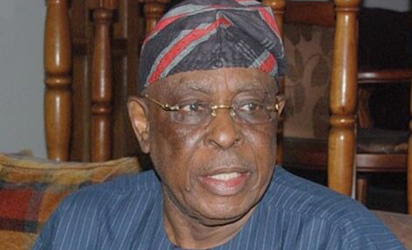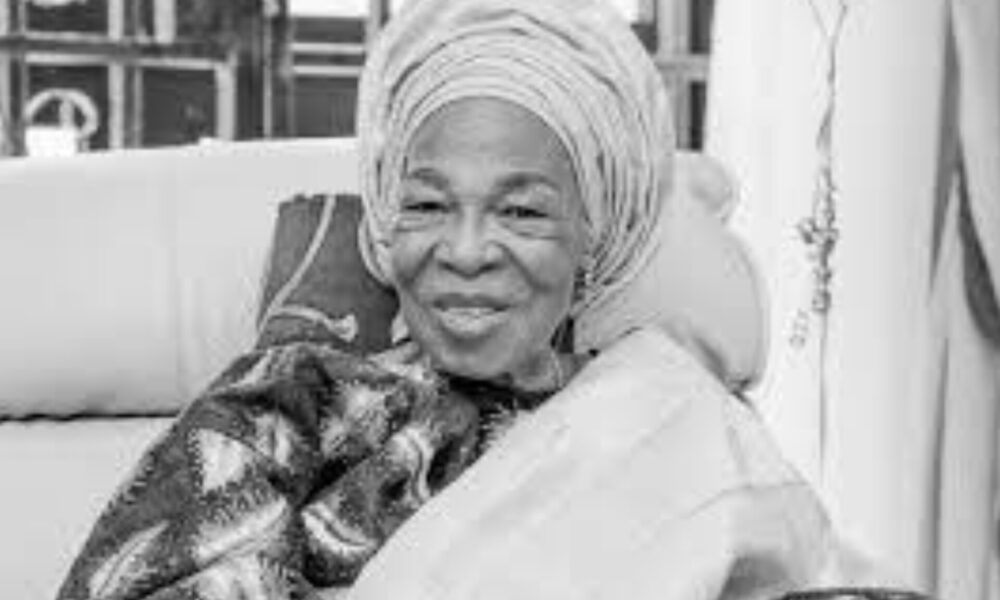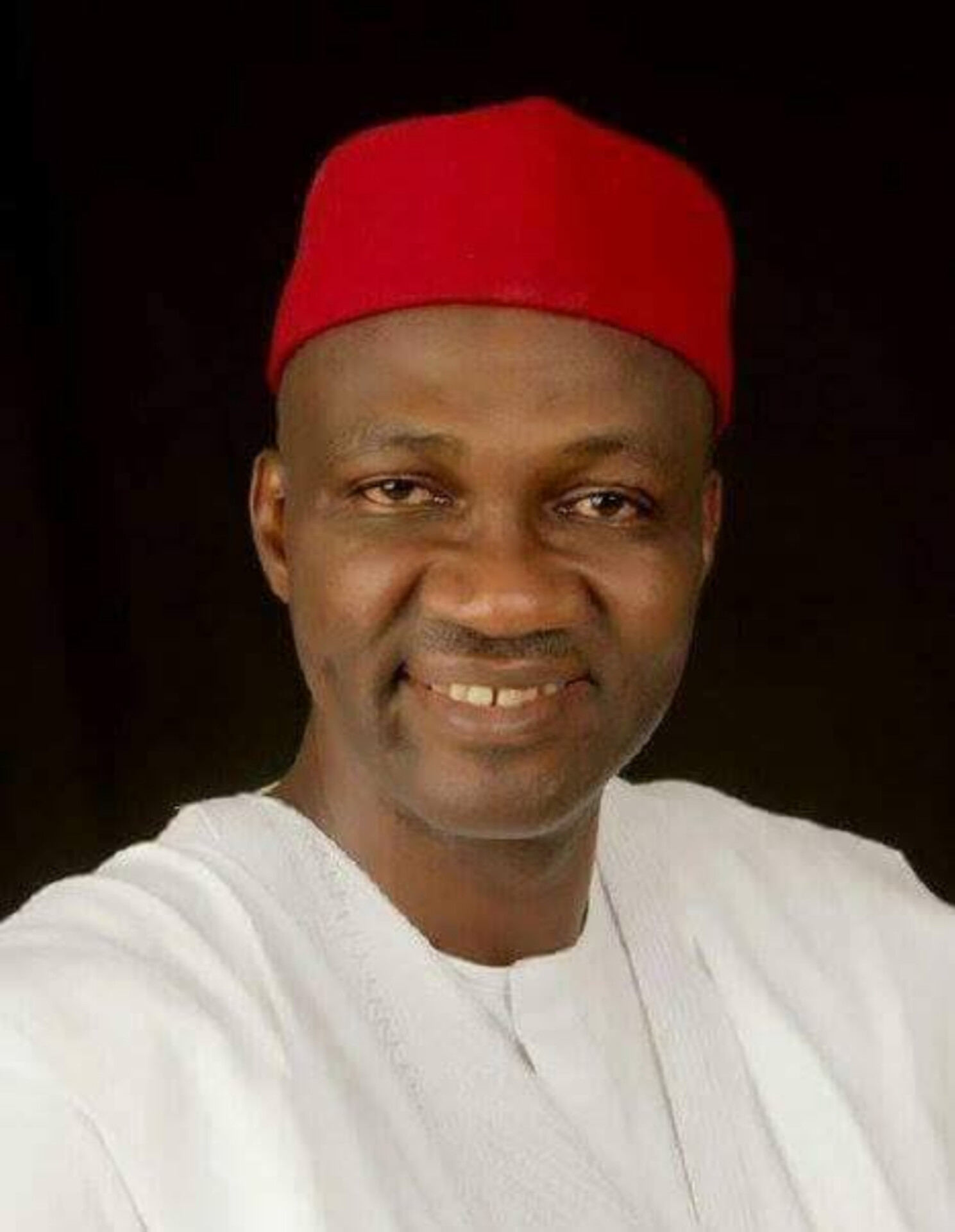BY Prof. Mike A. A. Ozekhome, SAN, CON, OFR, LL.D,
Crafting a tribute to someone as towering as Aremo Olusegun Osoba is akin to navigating a labyrinth of accolades where every path seems well trodden. Whether you aspire to extol baba Osoba as a Journalist, a Politician, a Statesman, or as the embodiment of a man who lives life to the fullest whilst enriching humanity, each facet of his persona has already been immortalized in praise. Indeed, in the chronicles of journalism and politics in Nigeria, the name Aremo Olusegun Osoba will always resonate and reverberate with distinction. He just turned 85.
In the grand tapestry of Nigerian journalism and politics, Aremo stands tall. This is a man whose life and career are the epitome of integrity, character and an unwavering commitment to public service. Born on July 15, 1939, in the quaint town of Egbatedo, Ogun State, to Pa and Madam Jonathan Babatunde Osoba, his journey from humble beginnings to the pinnacle of journalism and politics is nothing short of legendary. As we celebrate this remarkable man, it is fitting to recall the words of John Quincy Adams, the 6th President of the United States of America: “If your actions inspire others to dream more, learn more, do more and become more, you are a leader.” Chief Osoba embodies this sentiment in every respect.

THE JOURNALISTS’JOURNALIST
“Journalism is the first rough draft of history,” wrote Philip Graham (former co-owner of the Washington Post), a sentiment that resonates profoundly in the career of Chief Olusegun Osoba. His journey into the realm of journalism began in 1964 as a trainee reporter with the Daily Times; and from those early days, his meticulous attention to detail and commitment to uncovering the truth quickly set him apart. Within two years, his diligent reporting on crime stories had established him as a force to be reckoned with. By 1966, he was already serving as the diplomatic correspondent for the Times.
Osoba’s rapid rise within the journalistic ranks is a testament to his unparalleled skills and work ethic. By 1968, he had ascended to the role of news editor. Barely three years later in 1971, he was appointed Deputy Editor of the Sunday Times. A year later, he became the deputy editor of the Daily Times. His editorial acumen was so clear and authoritative that by 1975, he had reached the pinnacle of his journalistic career as the Editor of the very respected and influential Daily Times of Nigeria. In this role, he championed investigative journalism and social justice, guiding his team with the wise saying that “The pen is mightier than the sword.”
Aremo’s contributions were not confined to Nigeria. As a stringer for international media giants such as Newsweek Magazine, the BBC, The Times of London, and the United Press International News Agency, Chief Osoba’s journalistic prowess garnered international acclaim. His commitment to truth and integrity transcended borders, earning him the well deserved title of “the journalists’ journalist.” This was not just a moniker, but a recognition of his exceptional contributions to the field of journalism.
Aremo’s career reflects the ethos of Edward R. Murrow’s (renowned American broadcast journalist) assertion: “To be persuasive, we must be believable; to be believable, we must be credible; to be credible, we must be truthful.” His work consistently embodied these principles, maintaining an unwavering commitment to accuracy and integrity in reporting. His tenure as Editor of the Daily Times was marked by a relentless pursuit of truth, regardless of the challenges and dire consequences. He was not afraid to confront the powerful or expose wrongdoing. He embodied the journalistic principle that “Journalism can never be silent: that is its greatest virtue and its greatest fault. It must speak, and speak immediately, while the echoes of wonder, the claims of triumph, and the signs of horror are still in the air.”
One of Chief Osoba’s most significant contributions to journalism was his advocacy for investigative reporting. He believed that journalism should serve as a watchdog for society, a sentiment echoed by the saying, “A good newspaper, I suppose, is a nation talking to itself.” His editorial leadership skills saw the Daily Times become a beacon of investigative journalism, tackling myriads of issues ranging from corruption, governance, to social injustice. His ability to uncover and report the truth earned him deep respect and admiration from peers and the public alike.
Chief Osoba’s influence extended beyond his editorial duties. He played a crucial role in mentoring the next generation of journalists, instilling in them the values of ethics, accuracy and objectivity in their work. His commitment to these principles was unwavering, even in the face of adversity. He understood the power of the written word and used it to effect positive change, thus demonstrating that “The function of the press in society is to inform, but its role in a democracy is to safeguard the liberties of the people.”
In recognition of his outstanding contributions to journalism, Osoba received numerous awards and accolades globally. His work with international media organizations further underscored his global impact. As a stringer for Newsweek, the BBC, The Times of London, and the United Press International News Agency, he brought Nigerian stories to the world stage, highlighting the complexities and nuances of the country’s socio-political landscape. His international recognition was not just a personal achievement, but also served as a testament to the high standards he set for Nigerian journalism, thus mirroring Nigeria to the world in glittering colours.
A STATESMAN OF GREAT REPUTE
“Public service must be more than doing a job efficiently and honestly. It must be a complete dedication to the people and to the nation,” remarked Margaret Chase Smith (first woman to serve in both Houses of the United States Congress). Osoba’s transition from journalism to politics was seamless, driven by a deep seated desire to serve and uplift his community. In 1992, he was elected Governor of Ogun State on the platform of the Social Democratic Party (SDP); and in 1999, he was re-elected on the platform of the Alliance for Democracy (AD).
Aremo Osoba’s governance was characterized by transparency, accountability and a focus on infrastructural development. His administration undertook significant projects aimed at improving the lives of the people. One of his notable achievements was in strengthening, expanding and building on the already established Ogun State Polytechnic which provided thousands of young Nigerians with opportunity to access higher education. The Polytechnic was formally conceived in 1980 as Ogun State Polytechnic during the military administration of Brigadier Harris Eghagha; but formally established by Chief Bisi Onabanjo’s administration. This initiative aligns with the idiom, “Teach a man to fish, and you feed him for a lifetime.” Osoba understood that education was the cornerstone of sustainable development and worked tirelessly to ensure that all educational institutions in Ogun State were adequately funded and managed.
His administration also prioritized healthcare in recognition of the truism that, “Health is wealth.” Under his leadership, the state’s healthcare system saw substantial improvements, with hospitals and clinics being adequately staffed and equipped to meet the needs of the teaming populace. His commitment to improving the state’s infrastructure was evident in the numerous road projects and public works undertaken during his tenure, ensuring that Ogun State had the necessary facilities to support its growing population.
Beyond these tangible achievements, Chief Osoba’s governance style was marked by a commitment to the hallowed principles of democracy and good governance. His administration was known for its transparency and accountability, earning him the respect and admiration of the people of Ogun state and Nigeria at large. He believed in the power of public service to effect positive change, a belief that was reflected in his policies and actions. His tenure as governor was a testament to the idea that “Leadership is not about being in charge. It is about taking care of those in your charge.”
Chief Osoba’s influence extended beyond the borders of Ogun State. His role in the Nigerian Constituent Assembly in 1988 was pivotal, as he contributed to shaping the country’s future, even though the 1989 Gen. Ibrahim Babangida’s Constitution that emerged from it never saw the light of day. I was present with the Aremo at the Vision 2009 which was an economic forum to propel Nigeria to become one of the most developed countries of the world by the year 2020. His unquantifiable contributions can never be forgotten. At the 2014 National Confab, peopled by 402 delegates from all aspects of the Nigerian society, Osoba shone like a million stars in tackling the delicate issues of the day. He is on record to have severally called for implementation of the over 600 recommendations that were arrived at in re-engineering Nigeria. There has been none. His involvement in the International Press Institute and the Commonwealth Press Union further highlight his commitment to promoting press freedom and protecting the rights of journalists worldwide. His contributions were recognized with the Nigerian National Honor of the Commander of the Order of the Niger (CON), a testament to his invaluable service to the nation.
His international engagements underscored his global influence. As a member of the International Press Institute, Chief Osoba was instrumental in advocating for press freedom and the protection of journalists. His work with the Commonwealth Press Union highlighted his commitment to upholding the principles of free and fair journalism on a global scale. His efforts were not just about defending the rights of journalists, but also about ensuring that the public had access to accurate and unbiased information.
Chief Osoba’s legacy as a statesman is one of dedication to public service and commitment to hallowed democratic principles. His governance in Ogun State set a standard for future leaders, demonstrating that it is possible to lead with integrity and focus on the welfare of the people. His contributions to national and international bodies further highlight his commitment to the principles of democracy, transparency and accountability. His works have left an indelible mark on Nigeria’s political landscape, inspiring future generations to pursue excellence in public service.
Chief Olusegun Osoba’s life and career are a testament to the power of ambition, resilience and integrity. His journey from a humble background to the heights of journalism and politics is a beacon of inspiration for all. As Ralph Waldo Emerson (an American essayist, lecturer, philosopher, abolitionist and poet who led the Transcendentalist movement of the mid-19th century) once said, “Do not follow where the path may lead. Go instead where there is no path and leave a trail.” Chief Osoba not only followed this path but also blazed a trail for future generations to follow.
His unallowed dedication to truth, justice and the welfare of his people has left an indelible mark on Nigeria’s history. Chief Osoba’s contributions to journalism and politics will be remembered for generations to come, inspiring countless individuals to pursue excellence and integrity in their endeavors. His legacy is a shining example of what can be achieved through hard work, dedication and an unwavering commitment to one’s set principles.
In reflecting on Aremo Osoba’s career, one is reminded of the saying, “A life of integrity is the most fundamental source of personal worth.” His life remains a testament to this truth. From his early days as a journalist to his tenure as governor, and thence as a nation builder, he has consistently demonstrated the power of integrity and dedication to public service. His story is not just one of personal success, but also of profound impact on the lives of Nigerians.
Chief Osoba’s legacy is one of excellence and true service. His contributions to journalism have helped shape the media landscape in Nigeria and beyond; while his political career has set a benchmark for transparency and accountability in public and governance. As chairman of the Governing Board of the Nigerian Institute of Journalism (NIJ), he played a crucial role in shaping the future of the profession, ensuring that the next generation of journalists upholds the highest standards of ethics and accuracy.
His work with the International Press Institute (IPI) and the Commonwealth Press Union (CPU) further highlight his commitment to promoting press freedom and protecting the rights of journalists worldwide. Osoba’s influence has since extended beyond his professional achievements. He is widely known for his humility, generosity, gregariousness, incandescence and utmost devotion to his family and community, embodying the saying that, “True leadership is about serving others, not being served.”
Aremo’s legacy will continue to shine and inspire future generations, reminding us that with hard work, integrity and dedication to one’s, chosen cause, we can achieve greatness and make a meaningful impact on the world. Happy birthday to a man of character, valour and integrity. Happy celebration to an uncommon politician; a journalist’s journalist; a distinguished elderstatesman; a patriot and a detribalized Pan-Nigerian.



